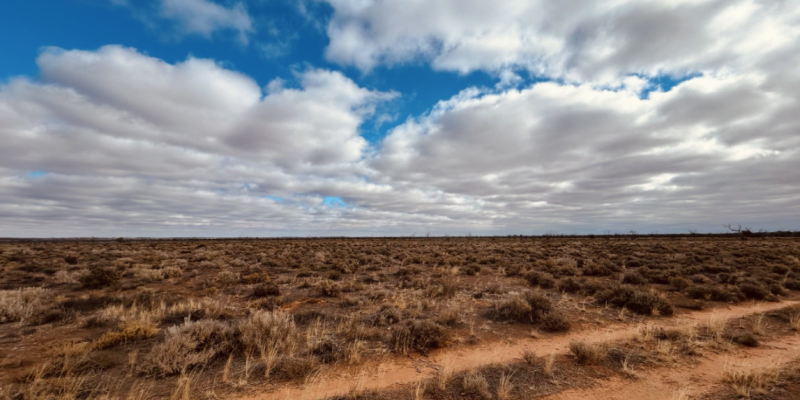This Sunday is International Women in Engineering Day, celebrated each year on the 23rd of June to honour the outstanding achievements of women engineers and to encourage more girls and women to pursue careers in engineering.
The day highlights the contributions of women to the engineering field and promotes gender diversity in STEM (Science, Technology, Engineering, and Mathematics).
At Sequana we are lucky to have some outstanding female engineers with varying experience in the team, and to celebrate the occasion, they have answered some of our burning questions to provide their different perspectives, insights and inspire the next generation of female engineers.
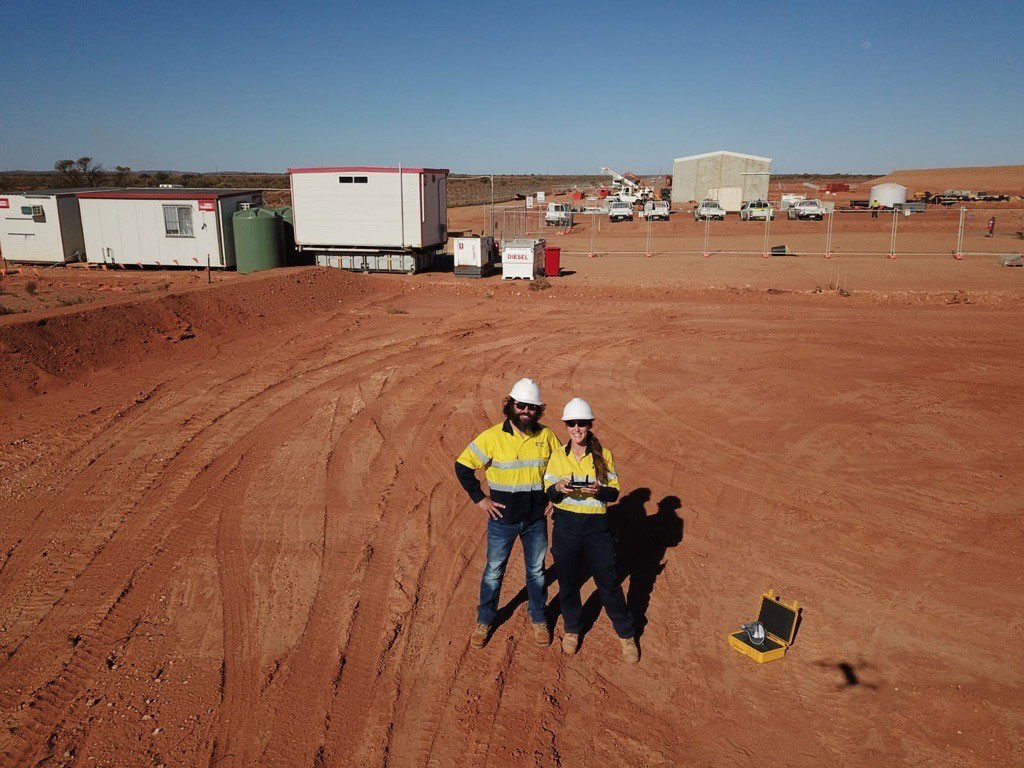
What inspired you to become an engineer?
Natalie Sharp, Director Finance, Systems and PMO
“A poster. There was a very colourful poster up in the careers office at my high school that said ‘Do you like maths and science? If so, try engineering.’ I liked maths and science, so I looked into it further. I was fortunate to do two weeks of work experience in Year 10 through the then Institute of Engineers ‘Women in Engineering’ program at the Alcoa Point Henry (near Geelong) Aluminium smelter. That experience showed I could use maths and science in an interesting way to solve problems, so here I am. I come from a family that has no background at all in engineering or science (genetically I should have been a teacher) so that poster was incredibly influential.”
Hannah Walmsley, Associate Director, South & East Australia
“I fell into Engineering because I enjoyed maths and science subjects at school. It has been such a rewarding career journey so far and upon reflection so much more than ‘maths and science’!”
Misaki Nakamura, Project Manager
“I enjoy problem-solving. Every day there’s a new problem to solve so it never gets boring, and I get to work on cool projects that help the community.”
Kirrily Addison, Project Manager
“I was good at maths and physics at school and thought engineering was something women weren’t expected to pursue (at that time), so wanted to challenge expectations.”
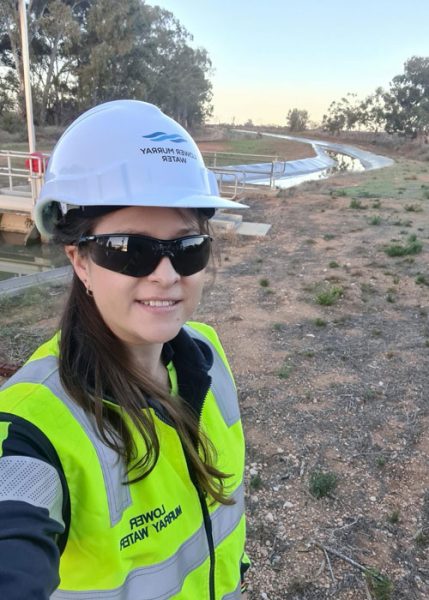
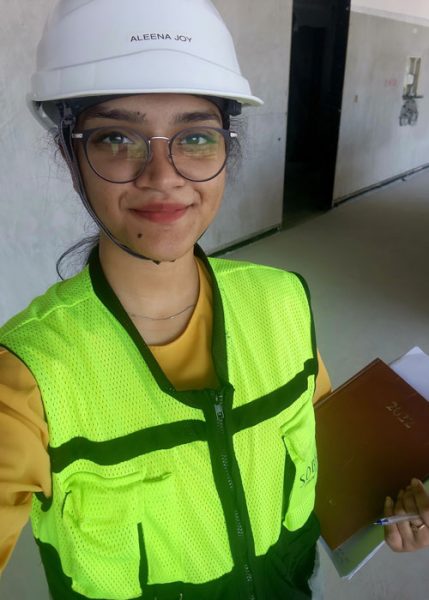
Iris Aliaga Lartiga, Senior Project Manager
“I was good at maths and science, and I heard a crazy cousin of mine was studying Electronical Engineering and it encouraged me to study a difficult career. I liked the subjects she was taking, so I decided to apply and study engineering. I started studying Physics, and I didn’t like only doing that, I liked physics but more so the application of them. A female professor of mine was a Chemist and introduced me to other engineers – her school friends – to see if I liked that, and I liked Civil Engineering.”
Jess McGrouther, Senior Project Manager
“Becoming an engineer was certainly no life-long dream for me. I was very interested in maths and science subjects through high school and during the later years of my schooling my teachers suggested that engineering may be a good choice due to my interest in these areas, however, I didn’t know much about what a career in engineering would look like, nor did I know any engineers in my network. I decided to pursue a degree in civil engineering regardless.”
Aleena Joy, Engineering Analyst
“My father, who is also an engineer, has been my greatest inspiration. Growing up, I was captivated by his work in the water industry and his frequent travels to other countries was an exciting prospect.
What is your experience of being a female engineer?
Natalie Sharp, Director Finance, Systems and PMO
“For the most, it has been positive. I have had the opportunities to get involved in really interesting and socially impactful projects throughout Australia and work with great people and clients. As a graduate at the turn of the century there were a few requests to make coffees and clean up the kitchen when the male grads didn’t get asked, and the daunting experience of walking in on the first day of being the only female in about 100 engineers on a project (Lane Cove tunnel design), but for the most it has been fine. When I had my first child there wasn’t anywhere established to breastfeed in the office, so I got that set up when I returned to work which made it a bit easier for those mums that followed.”
Hannah Walmsley, Associate Director, South & East Australia
“I’ve been fortunate to have a broadly positive experience as a female engineer which is a reflection of the values held by the organisations I have worked for. Innate bias and the application of stereotypes will always be a challenge. As a female Engineer, I have found that it’s a strength acquired over time to refuse to fulfil the stereotypes that are usually applied.”
Misaki Nakamura, Project Manager
“It’s been excellent. I haven’t encountered any barriers or challenges at all and I consider myself very lucky for it.”
Kirrily Addison, Project Manager
“I have generally been very lucky in that I have been supported by colleagues and managers throughout my career, however, I have been yelled at and sneeringly called ‘sweetheart’ a few too many times by male contractors who weren’t happy with decisions.”
Iris Aliaga Lartiga, Senior Project Manager
“It’s hard, especially in male-dominated countries or fields. I started in Construction in South America, so the glass ceiling was very close to me. In that moment I decided to go and study abroad. And eventually, I stayed here in Australia working.”
Jess McGrouther, Senior Project Manager
“There have certainly been challenges. I have faced only one bout of clear discrimination which forced me to speak up about what was right, and this was perhaps the most internal confrontation I have experienced in my career to date. However, I would say my largest challenge in pursuing a career in a male-dominated profession has been learning to embrace authenticity. You don’t need to “fit in” to be successful, you simply find your own way of doing something and adopt the methods that work for you by utilising your strengths. Once I realised I didn’t have to be like everyone else and my uniqueness was ok – be it uniqueness in gender or in personality – then I felt like I could truly add value as an individual.”
Aleena Joy, Engineering Analyst
“I have always been made to feel welcome, with all roles and mentors I have worked with. I have never experienced any bias between my male colleagues and myself. Sequana in particular blows me away with its culture of promoting and leaving no stone unturned to uplift its women.”
What is the one piece of advice you would give to young women considering a career in engineering?
Natalie Sharp, Director Finance, Systems and PMO
“Back yourself, as engineering can provide a very interesting and rewarding career. When you think all those guys around you in high school or uni seem to know all of the answers, they don’t always. Some are just pretending they do because they are just as unsure as you may be feeling. Girls need to have more confidence in their abilities and not downplay achievements.”
Hannah Walmsley, Associate Director, South & East Australia
“Go for it! It’s a wonderful career, with so many different elements that you can choose to focus your energy on. At the end of the day, people make a project and people make a company, so align yourself with people who have your back and can promote you. If you feel lost or overlooked, move out and up.”
Misaki Nakamura, Project Manager
“What? Like it’s hard?” (Those familiar with Legally Blonde will get it.)
Kirrily Addison, Project Manager
“Engineering provides such a wide variety of opportunities across such a broad field of areas – there are many ways to follow interests either regarding specific fields, or career progression. And it continues to evolve with population growth and climate change and technology development – it will never be a stagnant field.”
Iris Aliaga Lartiga, Senior Project Manager
“To pursue that dream. Now it’s easier than ever before. A lot of females have cleared the path for future generations.”
Jess McGrouther, Senior Project Manager
“Go for it. Challenge the status quo. It is an incredibly rewarding career that offers more diverse opportunities than I am probably even aware of. Whatever you come across in life, engineers are probably involved, making the career opportunities endless. I come across unique challenges daily, and as such I am always learning which keeps me very interested in my career path.”
Aleena Joy, Engineering Analyst
“It’s a great route to take as it not only offers a wide range of professional development opportunities but at the same time, develops you personally, such as being open to taking more risks, not shying away from challenges and most of all, building perseverance.”
What do you think needs to be done to improve the statistics in terms of women’s participation in engineering?
Natalie Sharp, Director Finance, Systems and PMO
“I think there is a key aspect in maintaining girls’ interest in maths and science in the first place at high school, and then consider how to retain skilled engineers in the workplace. Evidence shows that women are less self-assured than men—and that to succeed, confidence matters as much as competence. There is a perception that maths and science are ‘hard’ which I think prevents many girls, who don’t have the same self-confidence, to continue. I see it in discussions with my own teenage daughter and her friends. They think the boys know all the material and can do it all, but I tell them that is just a front. The boys are just as unsure as the girls.”
“Not long ago, I actually confronted my daughter’s Year 11 engineering teacher about this as he kept telling the class about how ‘hard’ the subject is. This of course was reinforcing stereotypes and concerning the girls in the class. His response was that he was trying to pass a message to certain boys who thought incorrectly it was a practical subject, and instead, it is more about the analysis and assignments, not the ‘old school engineering’ where you use machines and lathes. He agreed that language matters and said he would change his words to infer it is more academic rather than ‘hard’. By changing his language, I hope it helps one more girl enrol and stay in that class.”
“Retaining women in engineering after having children is super important. There is all this experience and knowledge in a team member pre-child so why should that expertise and experience be lost just because there are now family things to juggle. And it is a juggle, especially when kids are younger. This is where we have implemented family focused policies that target both primary and secondary caregivers that enable choices for all families as to how they manage this juggle.”
Hannah Walmsley, Associate Director, South & East Australia
“Continued engagement and awareness about all the different and rewarding career paths you can take as an Engineer and that it’s absolutely a pathway for women. Ensuring companies are continually challenged to reflect on how inclusive they are for women in the engineering industry.”
Misaki Nakamura, Project Manager
“Early education and exposure is key. We need to encourage girls in school to take up engineering electives and help them understand their opportunities in the STEM industry. It’s important to show them that engineering isn’t just stale maths and science. Show them that it can have a creative element that integrates art with engineering to attract girls who may not want to lose their passion for creativity going into engineering, like designing wearable tech and interactive art installations.
“Workplace initiatives are also important. Providing part-time roles for mothers coming back into the industry – not just wishy-washy part-time roles but real roles on fun projects. Cross-disciplinary partnerships like collaborating with the healthcare sector to create programs that show how engineering skills can directly impact medical advancements and patient care, as well as partnerships with environmental organisations to show the importance of engineering in sustainability initiatives.”
Kirrily Addison, Project Manager
“It is hard to comment on this as a lot has changed since I studied at university and started working. But it is worth thinking about whether it is improvement that is needed with attracting females into engineering or retaining and supporting them once they’ve commenced working.”
Iris Aliaga Lartiga, Senior Project Manager
“The problem is not only fixed with the percentage of women that need to participate in a certain project but the level of relevance of the role. Give her the same opportunities as a male engineer, including the same salary. And facilities to support women returning after maternity leave. A lot of women come back but with fewer responsibilities, or a lower salary. Meanwhile, male colleagues keep growing as professionals. I know these are problems that need to be addressed more at an industry level, but it is also important for companies to show that they understand and are addressing this.”
Jess McGrouther, Senior Project Manager
“Normalisation of part-time working, job sharing, and flexibility. Until recently I hadn’t come across a single female engineer or female manager in a similar job to me during my career that works in one of these manners. Either they don’t exist, which we know isn’t true, or they move on to a different profession that is more supportive of these working conditions. When it came time for me to consider having a family, these were the things that stood out to me as problematic. How would I continue in this field, doing this job, in a part-time or flexible way, when there is no one that I see around me that is able to successfully make this work? The saying “you can’t be what you can’t see” certainly rings true, and with businesses working to pilot arrangements that will help progression in this space I think will help to retain and attract female talent in the profession.”
Aleena Joy, Engineering Analyst
“Providing girls and boys throughout childhood with the same toys, games and topics, and avoiding conventional gender norms from a young age should inspire more women to enter careers in engineering.”
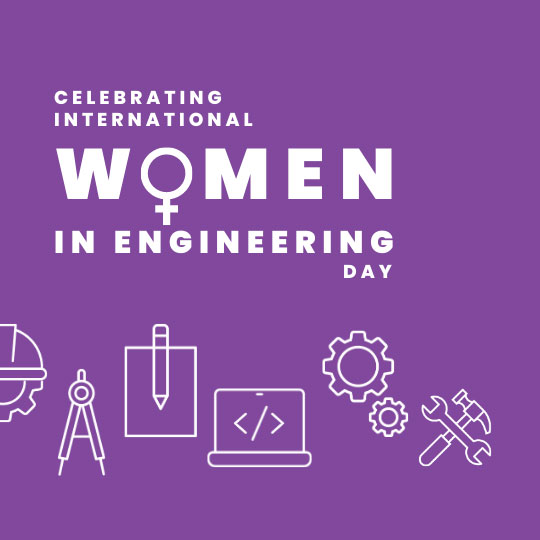
For more information click here.
